Even though the nation’s leaders constantly change, there is one goal they have in common. That goal is community spirit inspired by good citizenship. The concept requires diligent learning, practice, and support to be realized and continued. The recently created Obama Foundation bases its purpose on shaping good citizens in the 21st century. What examples do the children of today, tomorrow’s good citizens, have within reach so the overall goal inspires positive steps towards an inspired tomorrow?
President Barack Obama hugs children participating in the White House Healthy Kids & Safe Sports Concussion Summit, in the the East Garden Room of the White House, May 29, 2014. The President met with the group indoors when their South Lawn event was canceled due to weather. (Official White House Photo by Chuck Kennedy)
Today’s good citizens are as important as yesterday’s and tomorrow’s.
Teaching kids good citizenship involves teaching good character. Good citizens share certain characteristics, including helpfulness, consideration, and respect. Responsible citizens:
- Contribute to the community.
- Proudly demonstrate patriotism.
- Practice self-discipline.
- Possess moral courage.
- Are honest.
- Practice accountability.
Quality citizens acknowledge the valuable contributions of past and present pioneers. They do not attempt to disguise or hide another’s beneficial efforts because of fear, disrespect or disinterest. They respect that others may have a better idea about certain things and encourage other people to listen, evaluate and share what they learn.
Tips for teaching kids to be good citizens
The characteristics mentioned earlier are valuable ways to teach children how to be good citizens now and in the future. Concepts like civic duty and educated participation in public affairs strike parents as overwhelming ides for teenagers and younger kids. Earning praise for being “good” is the reward for learning and doing what parents, teachers and other authority figures promote as desirable activities and contributions.
Some tasks are small while others take more effort. Activities grow more complicated and require more skill as kids grow older. Children grasp the idea that people close to them and society in general demands more responsibility and additional participation in everyday tasks as they grow older. Small jobs from yardwork to babysitting develop the confidence of providing a service to others while demonstrating responsibility. Participation in youth groups encourages community awareness and the good feeling earned by helping others without expecting something in return.
Be the prime example for your children
Parents influence children without saying a word. Kids notice what is important in your daily and special activities. Here are two suggestions to instill and build citizenship skills in your child.
Be a positive role model. Cheerfully helping others by working with charities or on your own will show them that friendly, caring actions bring happiness to the giver as well as the recipient.
Invite your child to join you in the good deeds you participate in. The example you set will give him or her the confidence to demonstrate good citizenship by helping others, building self-esteem and civic responsibility along the way.
Helping others
Developing the next generation of citizens is the primary focus of the Obama Foundation. Nonprofit programs in cities like Chicago will demonstrate how to be a 21st century good citizen. The goal of programs throughout the United States and around the world will emphasize the value of helping others. In turn, the actions will motivate everyone involved to develop their role as citizens. Children and young adults will have a safe place to present and develop ideas to help their community.
First Lady Michelle Obama talks with Joshua Wilkins-Waldron during a “Let’s Move! London” event at Winfield House in London, England, July 27, 2012.
(Official White House Photo by Sonya N. Hebert)
A Kindness Challenge
Is there a way to demonstrate the positive difference kindness makes? Certainly! More4Kids encourages participation in its 2017 kindness challenge. It emphasizes the value of compassion and understanding, regardless of how big or small the act may be. It’s an easy, yet memorable way for kids to discover they CAN make a positive difference in the future.
Random acts of kindness are heartwarming and worthwhile. You and your children may want to pursue long-term, carefully organized activities. Together, develop an idea or participate in an active project in your area. Set goals that can be achieved and write down the steps to make it happen. Parents and children need to remember some tasks take quite a bit of time. Make kindness a priority by showing care, compassion, and a willingness to follow through on your commitment. It’s a series of steps that set the example for your family and cultivate community spirit and civic pride.
Kids care
Most of us have seen a toddler cry in response to the tears of another child. Compassion is a natural part of human emotions, making it easier for kids to recognize that other people have different lifestyles, thoughts and feelings. Empathy gradually replaces self-centeredness around age five, though some kids remain “me” oriented for a longer time.
Bring about your child’s ability to recognize the feelings and emotions of others by talking about real or fictional happenings. Discuss how it feels to have nothing to eat when the other kids have snacks and how to help make the situation better. Be kind to your child by showing respect, love and concern. That, in turn, provides the example of treating others the way we wish to be treated.
Promote good citizenship by praising good deeds like helping others and returning things to their proper owners. Tell your kids why honesty and compassion help define the skills of respected leaders. Talk about the way government works and how it affects our lives. Ask your child how he or she can bring about change in a responsible (good) manner to better the community, country, or world. Encourage ideas to make the world a better place in 2017. Kids really can make a difference towards a relevant future.
At More4kids while we will say good and miss President Obama and First Lady Michelle Obama in the White House, we will welcome them with open arms as fellow Citizens. We wish nothing but the best for them and their family. Together we build a better America. That is the Obama Legacy, and it will live on and continue to touch and inspire future generations.
“Lawrence Jackson captured this cute photograph of the President holding Arianna Holmes, 3, before taking a departure photo with members of her family in the Oval Office.” (Official White House Photo by Lawrence Jackson)







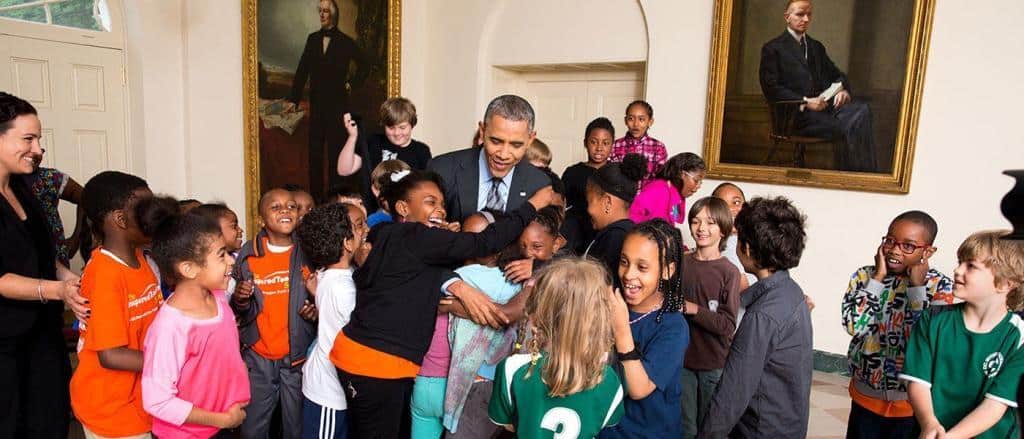
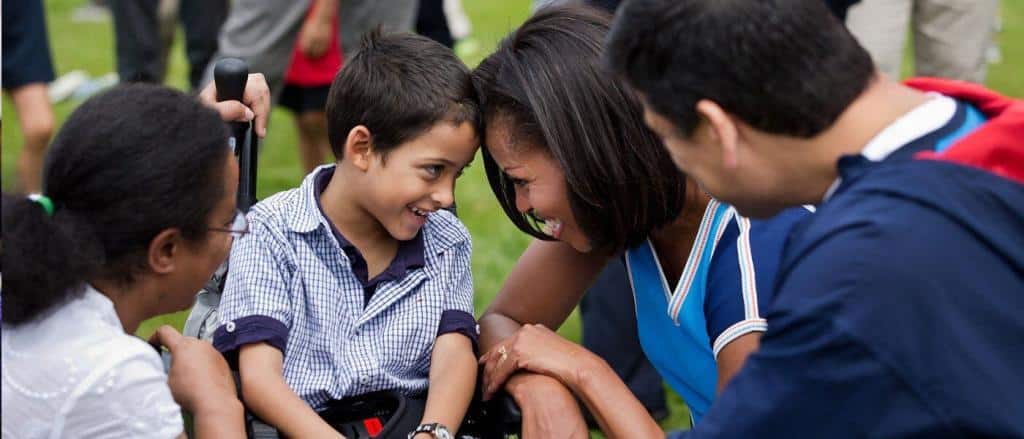
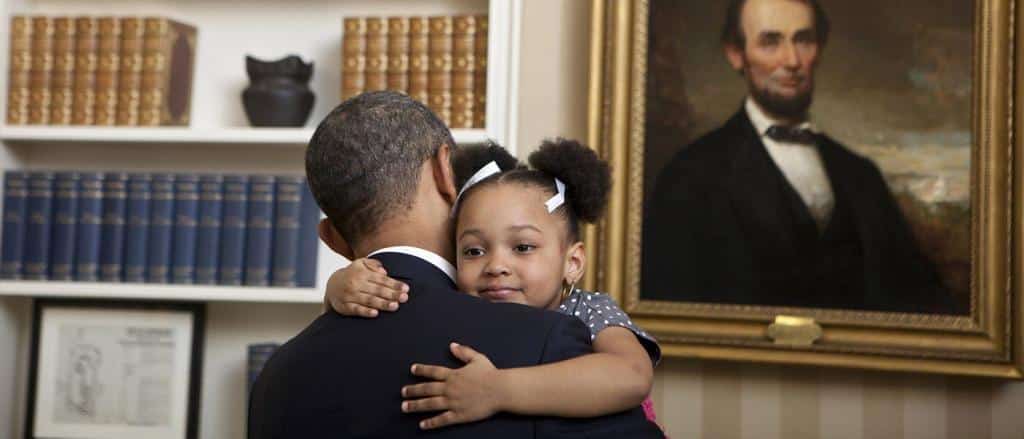



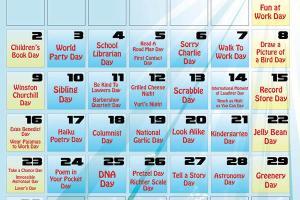

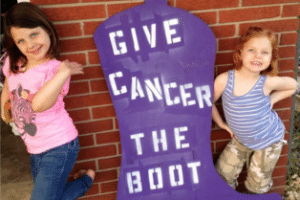

Add Comment